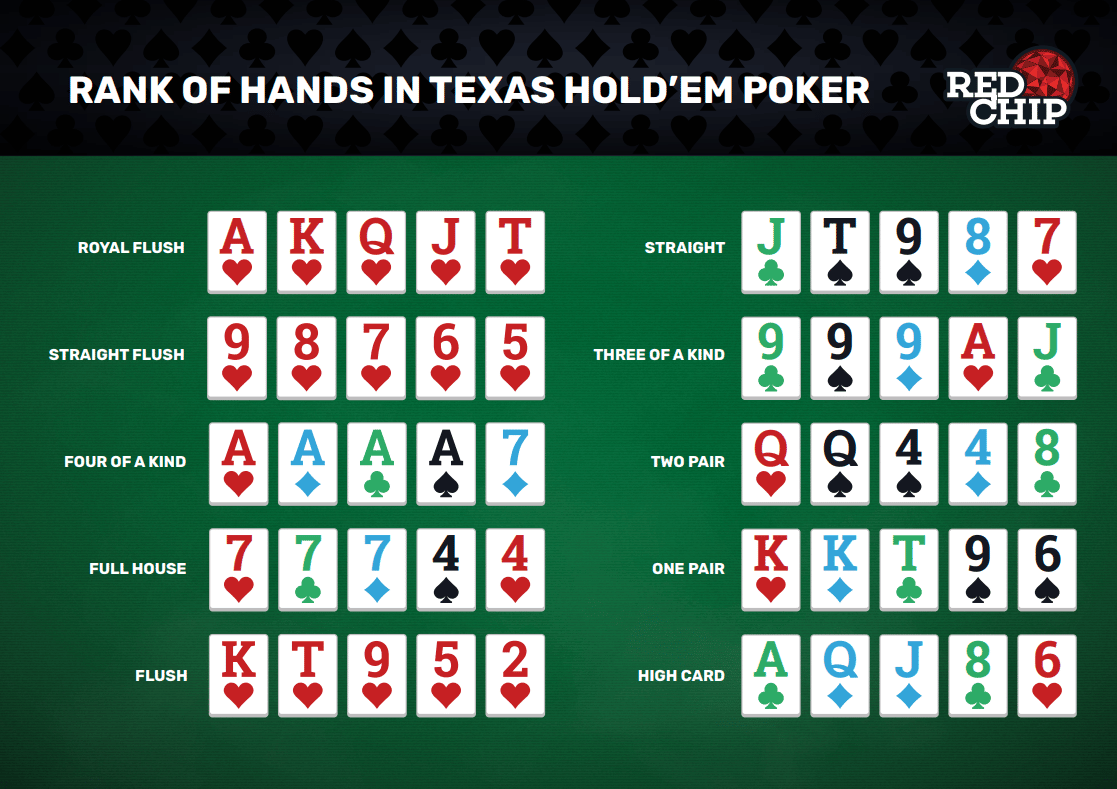
Poker is a card game played around the world. It is a popular and lucrative hobby, and it also offers an excellent opportunity for people to develop a variety of skills. It is a game that requires concentration, self-examination, and a great deal of patience.
How to Win a Poker Game
In poker, each hand is dealt with five cards and an ante (the initial amount of money that must be placed into the pot). The dealer shuffles the deck of cards and deals them face down to each player one at a time. Then everyone has a chance to bet, check, raise, or fold their hand.
A hand is considered to be good if it contains a pair of cards or more, and a hand is bad if it does not. A royal flush (a hand containing a 10, Jack, Queen, King, and Ace of the same suit) is the highest possible hand. Other hands include straight flushes, four of a kind, three of a kind, two pairs, one pair, and many more.
The rank of a standard poker hand is determined by its probability, which is the ratio of its odds to the expected number of hands it could be drawn out of a deck. Ties are broken by the best unmatched pair or secondary pair.
Getting Tunnel Vision When It Comes to Your Own Hand
New players tend to be overly focused on their own hand, which can lead them to bluff too much and make mistakes on the flop and turn. Ultimately, this is a poor strategy since it can end up costing them money.
Read Your Opponents
In many games, a player’s skill at reading other players is very important. This can be achieved through observing body language, facial expressions, and other tells. In poker, it is even more critical because there are a lot of different types of players.
1. Play Only When You Feel Good
Whether you are playing a casual game or a high-stakes tournament, it is vital to be able to play the game when you feel good. This will not only prevent you from playing on tilt but it will also help you have smaller swings and move up in the stakes more quickly.
2. Avoid Trashy Hands
If you are a beginner it is very common to get tunnel vision and think that you have the strongest hand. This is a mistake that can be costly and it is important to understand that your opponent may have a very weak hand.
3. Keep Yourself Happy
It is important to play poker when you are happy and feel good. This will prevent you from playing on tilt, which is a negative strategy and can result in serious losses over the long term.
4. Don’t Get Too Attached to Good Hands
In poker, pocket kings and queens are very strong hands but they can also be destroyed by an ace on the flop. This is especially true if the board has a lot of flush or straight cards.